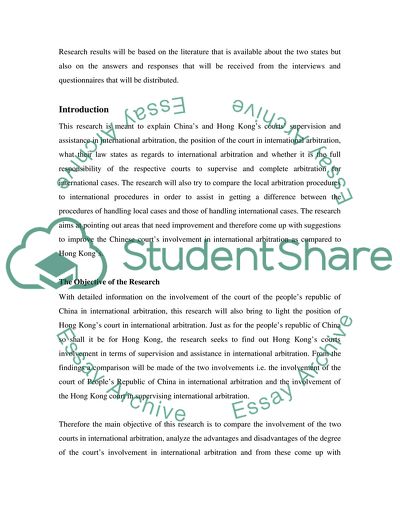Cite this document
(Court's Supervision and Assistance in International Arbitration: Research Paper, n.d.)
Court's Supervision and Assistance in International Arbitration: Research Paper. Retrieved from https://studentshare.org/law/1729162-courts-supervision-and-assistance-in-international-arbitration-compare-and-contrast-with-peoples-republic-of-china-and-hong-kong
Court's Supervision and Assistance in International Arbitration: Research Paper. Retrieved from https://studentshare.org/law/1729162-courts-supervision-and-assistance-in-international-arbitration-compare-and-contrast-with-peoples-republic-of-china-and-hong-kong
(Court'S Supervision and Assistance in International Arbitration: Research Paper)
Court'S Supervision and Assistance in International Arbitration: Research Paper. https://studentshare.org/law/1729162-courts-supervision-and-assistance-in-international-arbitration-compare-and-contrast-with-peoples-republic-of-china-and-hong-kong.
Court'S Supervision and Assistance in International Arbitration: Research Paper. https://studentshare.org/law/1729162-courts-supervision-and-assistance-in-international-arbitration-compare-and-contrast-with-peoples-republic-of-china-and-hong-kong.
“Court'S Supervision and Assistance in International Arbitration: Research Paper”, n.d. https://studentshare.org/law/1729162-courts-supervision-and-assistance-in-international-arbitration-compare-and-contrast-with-peoples-republic-of-china-and-hong-kong.


